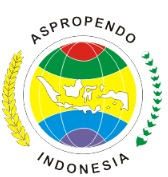Pengaruh Mata Kuliah Kewirausahaan Terhadap Minat Berwirausaha Pada Mahasiswa Pendidikan Ekonomi
DOI:
https://doi.org/10.37304/ej.v2i2.3011Keywords:
Entrepreneurship Course, Interest in EntrepreneurshipAbstract
The Economic Education Study Program at the University of Palangka Raya is one of the majors that has implemented entrepreneurship education. Entrepreneurship education has been included in the curriculum and has become a compulsory subject for economic education students. The purpose of this study was to determine whether there was an effect of entrepreneurship courses on the interest of students of Economic Education Class of 2017 at the University of Palangka Raya and to determine the interest in entrepreneurship of students of Economic Education of Class of 2017 at the University of Palangka Raya. In conducting this research, quantitative methods were used, while data collection was carried out by analyzing data and submitting a questionnaire/questionnaire to Economic Education students class 2017 at the University of Palangka Raya. The population in this study were students of economic education class 2017 at the University of Palangka Raya and the sample used was total sampling where all members/elements of the population were investigated. The validity test was carried out through the calculation of SPSS for windows while the reliability test used the Cronbach's alpha formula. The data analysis technique used (1) validity and reliability tests, (2) hypothesis testing, namely (a) simple linear regression, (b) partial t-test, and (c) coefficient of determination R^2. From the results of the Simple Linear Regression Test, Y = 18.689 + 0.677. X, with the coefficient of determination or KP: 0.370, it means that the entrepreneurship course variable contributes to the interest in entrepreneurship (Y) by 37%. While the remaining 63% is influenced by other factors outside the variables in the study. The results of the t-value test show that the t_count value is 4.529 > t_table, which is 2.03011 with a significant level of 0.000. The significant level is smaller than 0.05 which means that the hypothesis in this study rejects Ho and accepts Ha. Thus it can mean that the hypothesis "entrepreneurship courses have a direct and significant positive effect on students' interest in entrepreneurship" is accepted.
Downloads
References
Ahmad Susanto. 2013. Teori Belajar dan Pembelajaran di Sekolah Dasar.Jakarta: Kencana.
Atmaja, A. T., & Margunani, M. 2016. Pengaruh Pendidikan Kewirausahaan dan Aktivitas Wirausaha terhadap Minat Berwirausaha Mahasiswa Universitas Negeri Semarang. Economic Education Analysis Journal, 5(3), 774-774.
Alexandro, R., & Irwansyah, M. R. 2020. Peranan Smkn 3 Dalam Mengembangkan Ekonomi Kreatif Di Kota Palangka Raya. Jurnal Pendidikan Ekonomi Dan Kewirausahaan. Vol. 4, No. 1 Juni 2020, Hal. 145-160.
Fatrika et al. 2014. Analisis Faktor-Faktor Yang Mempengaruhi Minat Wirausaha Mahasiswa Dengan Teknik SEM. Jurnal Matematika UNAND Vol. 1 No. 2 Hal. 5-12. ISSN 2303.2910.
Fuadi, I.F. 2013. Hubungan minat berwirausaha dengan prestasi praktik kerja industri siswa kelas XII teknik otomotif SMK Negri 1 Adiwerna Kabupaten Tegal.” Jurnal PTM 9(1) Desember: 92-98.
Hendro. 2011. Dasar-Dasar Kewirausahaan. Jakarta: Eralangga.
Hidayat, D. 2017. Model Pelatihan Magang Kewirausahaan Potensi Lokal. Seminar Nasional Pendidikan Nonformal FKIP Universitas Bengkulu, Vol 1 Nomor 1.
Ihsana El Khuluqo. 2017. Belajar dan Pembelajaran. Yogyakarta : Pustaka Pelajar
Ismarli Muis, Misnawaty Usman, dkk. Modul Kewirausahaan untuk Mahasiswa. Makassar: Pusat Kewirausahaan Universitas Negeri Makassar, 2015.
Khotimah, N. 2016. Pengaruh Pelatihan Keterampilan Terhadap Minat Berwirausaha Pada Masyarakat Muslim Desa Panca Mukti,Kecamatan Pondok Kelapa, Kabupaten Bengkulu Tengah. Skripsi.
Made Dharmawati, D. Hajah. 2017. Kewirausahaan. Depok : PT Raja Grapindo Persada
M Notoatmodjo, S. 2013. Pengembangan Sumber Daya Manusia Edisi Revisi. Jakarta: PT. Rineka Cipta.
Masruroh, F. 2017. Pengaruh Pendidikan Kewirausahaan Terhadap Motivasi Berwirausaha Mahasiswa Departemen Manajemen Fakultas Ekonomi Dan Bisnis Universitas Airlangga Surabaya. Kajian Moral Dan Kewarganegaraan, 5(01).
Sardiman. 2011. Interaksi dan Motivasi Belajar Mengajar, Jakarta: Raja Grafindo Persada.
Setiyono, J. 2020. Upaya Strategi Pengembangan Kewirausahaan Masyarakat Melalui Home Industri Imur Bahalap Kota Palangka Raya. Jurnal Pendidikan Ilmu Pengetahuan Sosial (JPIPS), 12(1), 62-73.
Setiawati, Lilis. 2013. Upaya Optimalisasi Kegiatan Belajar Mengajar, Bandung: PT. Remaja Rosda Karya.
Suherman, Eman. 2010. Desain Pembelajaran Kewirausahaan. Bandung: Alfabeta.
Santoso, Djoko. 2013. Modul Kuliah Kewirausahaan. Jakarta: Direktorat Jenderal Pembelajaran dan Kemahasiswaan Ditjen Pendidikan Tinggi Kementerian Pendidikan dpan Kebudayaan.
Sugiyono. 2018. Metode Penelitian Kuantitatif, kualitatif dan R & D. Bandung: Alfabeta
Sugiyono. 2018. Metode Penelitian Pendidikan. Bandung. Alfabeta
Suryana. 2014. Kewirausahaan Kiat dan Proses Menuju Sukses. Jakarta: Salemba 4
Slameto. 2013. Belajar dan Faktor-Faktor yang Mempengaruhi. Jakarta : PT Rineka Cipta
Suharsimi Arikunto. 2010. Prosedur Penelitian Suatu Pendekatan Praktik. Jakarata: Rineka Cipta.
Wahyono, Budi. 2014. Pengertian Pendidikan Kewirausahaan. http://www.pendidikanekonomi.com/2014/07/pengertian-pendidikan-kewirausahaan.html.Diunduh tanggal 23 Juli 2017.









